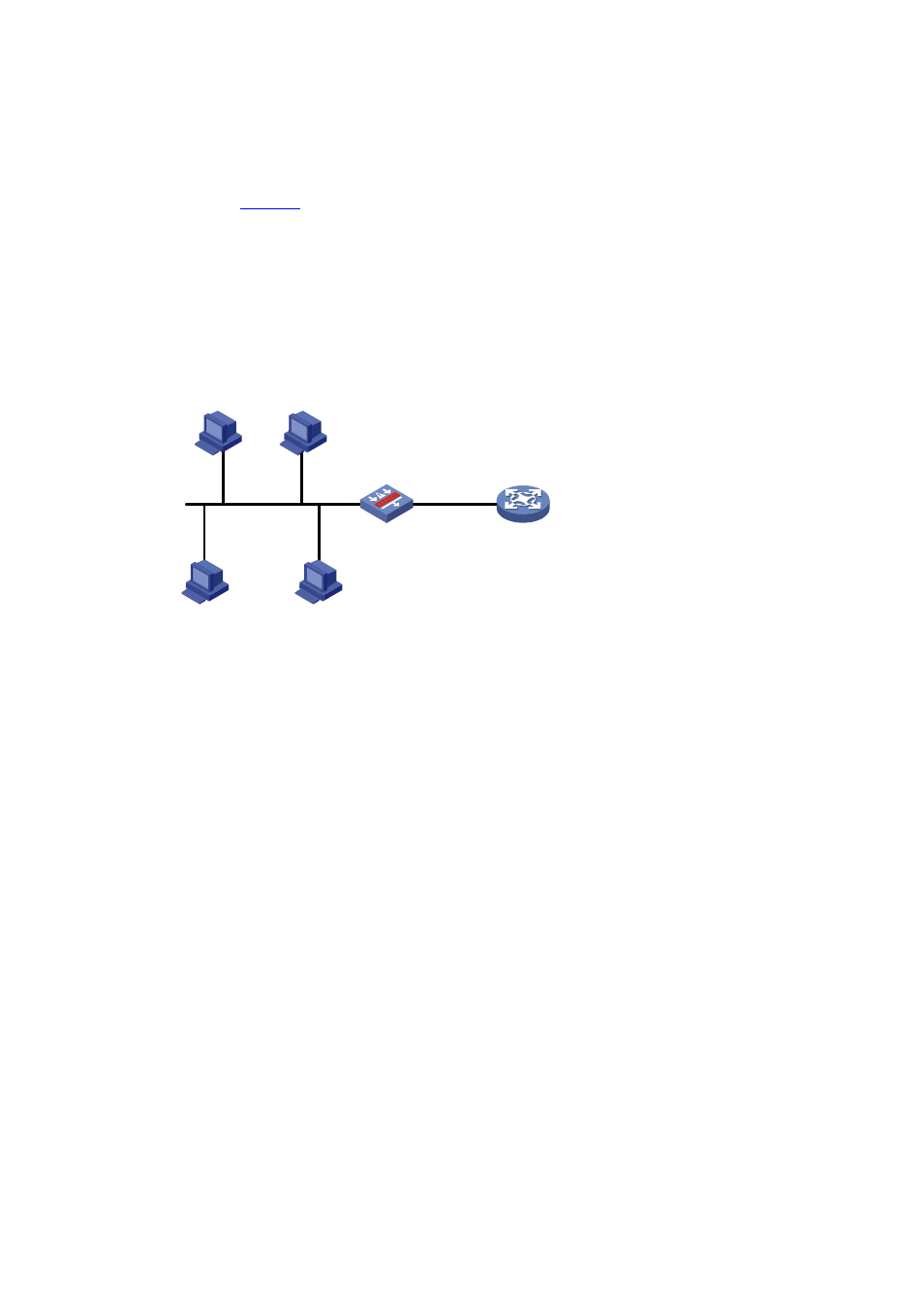Dhcpv6 relay agent configuration example, Network requirements, Configuration procedure – H3C Technologies H3C SecPath F1000-E User Manual
Page 95

4
DHCPv6 Relay Agent Configuration Example
Network requirements
As shown in
, the network address prefix of DHCPv6 clients is 1::/64, and the IPv6 address of
the DHCPv6 server is 2::2/64. The DHCPv6 client and server need to communicate via a DHCPv6 relay
agent (Device).
The device acts as the gateway of network 1::/64. It sends RA messages to notify the hosts to obtain IPv6
addresses and other configuration parameters through DHCPv6. For more information about RA
messages, see IPv6 Basics Configuration in the IP Services Volume.
Figure 11 DHCPv6 relay agent configuration
DHCPv6 server
Device
DHCPv6 relay agent
DHCPv6 client
DHCPv6 client
DHCPv6 client
DHCPv6 client
GE0/2
2::1/64
GE0/1
1::1/64
2::2/64
Configuration procedure
Step1
Configure the device as a DHCPv6 relay agent
# Enable IPv6.
[Device] ipv6
# Configure the IPv6 addresses of GigabitEthernet 0/1 and GigabitEthernet 0/2 respectively.
[Device] interface gigabitethernet 0/2
[Device-GigabitEthernet0/2] ipv6 address 2::1 64
[Device-GigabitEthernet0/2] quit
[Device] interface gigabitethernet 0/1
[Device-GigabitEthernet0/1] ipv6 address 1::1 64
# Enable DHCPv6 relay agent and specify the DHCPv6 server address on interface GigabitEthernet
0/1.
[Device-GigabitEthernet0/1] ipv6 dhcp relay server-address 2::2
Step2
Configure the device as a gateway
# Enable Router A to send RA messages and turn on the M and O flags.
[Device-GigabitEthernet0/1] undo ipv6 nd ra halt
[Device-GigabitEthernet0/1] ipv6 nd autoconfig managed-address-flag
[Device-GigabitEthernet0/1] ipv6 nd autoconfig other-flag
